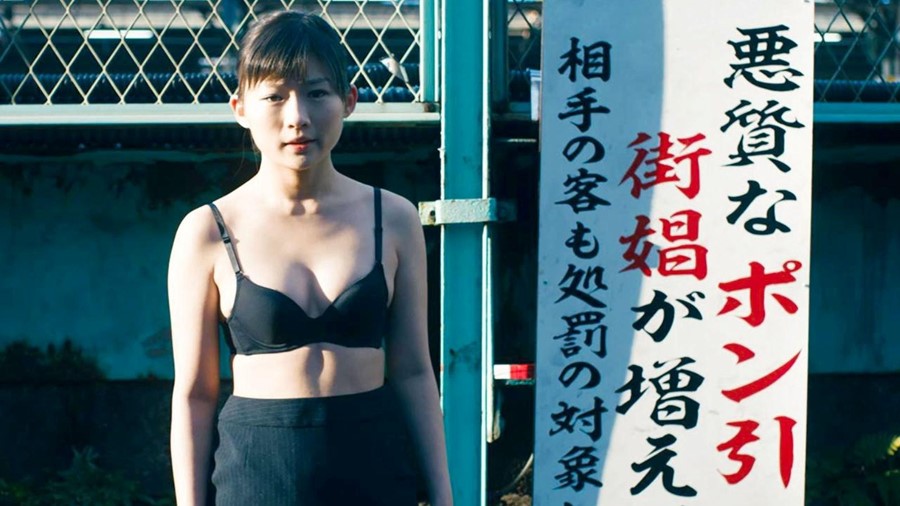The UK’s largest festival of Japanese cinema is back. Here, James Balmont takes us through a mix of vibrant films which showcase the country’s lively and versatile national cinema
The UK’s largest festival of Japanese cinema, The Japan Foundation Touring Film Programme, returns this week for its 19th edition – with a programme of 20 films travelling through venues in cities like London, Manchester, Belfast and Dundee from early February until the end of March.
The festival boasts an impressive legacy – past editions have provided the UK premieres of works by directors as varied as Takashi Miike (Audition), Nobuhiko Obayashi (House) and Japanese new wave director Seijun Suzuki (Tokyo Drifter). This year’s edition promises no less variety, with Japanese Academy Award-nominated studio features and creative indie dramas appearing alongside anime works and rare, forgotten classics.
The theme for this year’s festival is “dark minds. Questions posed by this year’s programming surround what constitutes such definition – with mysterious personalities, psychological deterioration, criminal escapades and unconventional stories from the corners of society. It all amounts to a breadth of works from a mix of vibrant cinematic voices, each strikingly unique in tone and style, yet united in showcasing the country’s lively and versatile national cinema.
AnOther got inside the heads (or more likely, the eye sockets) of the event programmers this year to give our take on some of the festival’s most compelling works. Check them out below, and catch them in regional cinemas across the UK for a limited time only in the weeks ahead.
Life: Untitled, 2019 (Lead image)
During the opening of Life: Untitled, a shirtless girl recounts her first experience of sex directly to the camera. It took place on Christmas Day when she was seventeen; she had been drunk to the point of sickness with a friend from school. Now, she’s about to try her hand at being a sex worker. She challenges the viewer, speaking directly into the camera: “Is my life worth anything?”
A sense of dwindling self-esteem is at the heart of Life: Untitled, a drama about a series of tumultuous relationships between escorts at a cynical call girl agency in Tokyo – where the sentiment that “we’re worthless” is widely shared and agreed upon. But the film – adapted from a stage play penned by director Kana Yamada, in her feature film debut – is much less downbeat than the premise would suggest.
An ensemble of memorable characters (including a manic, TV-addicted “sex addict”, and a call girl who has fallen in love with her driver) provide warmth, humour and heart, while lead actor Sairi Itô (last seen in Netflix’s The Naked Director) is one of several performers who make an impression. Some critics are calling it Japan’s answer to Lizzy Borden’s Manhattan indie classic, Working Girls.
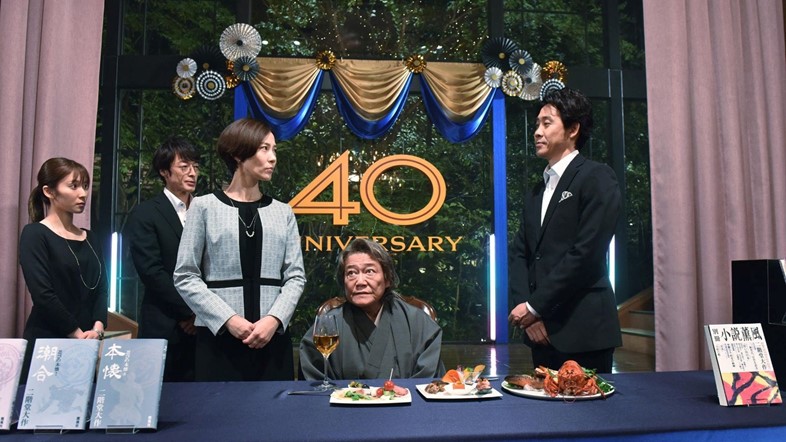
Kiba: The Fangs of Fiction, 2020
A corporate power struggle develops at a failing publishing company after its much-loved CEO unexpectedly dies. In the midst of the chaos, a maverick magazine editor hatches a series of audacious plans in order to preserve the future of the business.
A vibrant and funny drama (featuring some intensely funky musical cues), Kiba: The Fangs of Fiction is particularly notable for its impressive cast and crew. Jun Kunimura (Kill Bill, Audition) plays a leading writer celebrating a 40-year career; Shinya Tsukamoto (Tetsuo, Iron Man) is an affable bookstore owner; Yô Ôizumi (Spirited Away) plays the charismatic lead, and Hirokazu Kore-eda favourite Lily Franky (Shoplifters) also pops up in a cameo as a mysterious man.
The film is the latest from Daihachi Yoshida, who was notably nominated for the Camera d’Or at Cannes for the comedy-drama Funuke: Show Some Love, You Losers! in 2007.
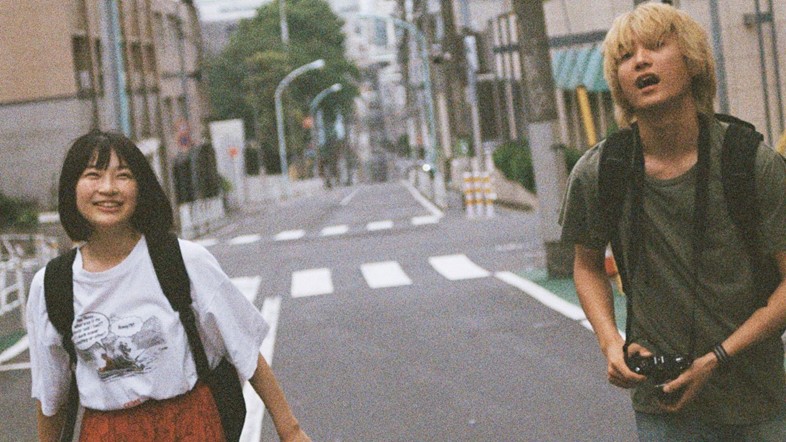
Colorless, 2019
Peroxide-haired rookie photographer Shu (Daichi Kaneko) finds his portfolio rejected and ridiculed by a potential employer as he tries to catch his big break. But he gets a chance to prove himself when he’s asked to take photos of a coy young woman named Yuka (Ruka Ishikawa, Shrieking In The Rain), who becomes something of a muse for him. It doesn’t take long for him to become enamoured with her – and sparks fly as his career then takes off. But despite their chemistry, Shu can’t help but suspect that Yuka may hide a secret.
Colorless, the feature film debut of writer-director Takashi Koyama, treads uneasy ground when it comes to gender politics. But as an urban coming-of-age drama it’s a captivating success. Beyond the compelling work of the two acting leads, it is the colours and images in Colorless that really impress (something you might expect of a film about photography).
The camerawork drifts from clinically framed snapshots to candid, handheld motion – with shots of pastel green shrubs, graffiti-strewn back-alleys and chain-link fences shot under soft blue morning light providing a sumptuous visual signature here.
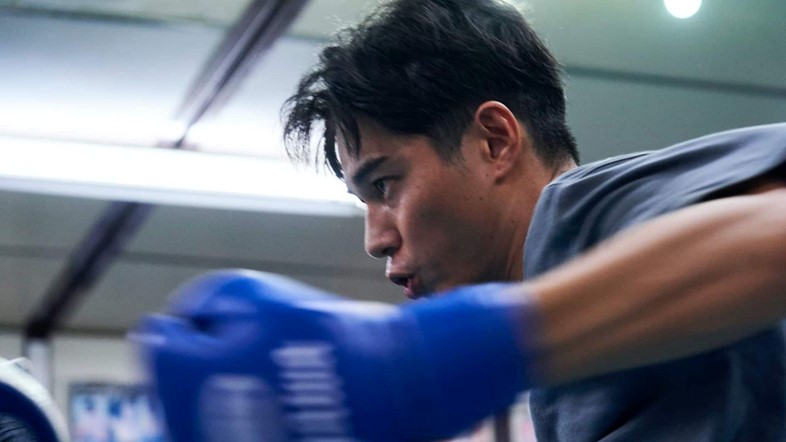
Blue, 2021
Whereas Hollywood has blockbuster heavyweights like Raging Bull and Rocky, the best ones from Japan are often more modest in scope – with Shinya Tsukamoto’s Tokyo Fist and Takeshi Kitano’s Kids Return among the best of the post-bubble economy era.
Add Blue, a new film from director Keisuke Yoshida, to that list. The film follows a series of engrossing characters who each pursue boxing for different means: Tsuyoshi (Tokio Emoto, Labyrinth of Cinema) is a timid games arcade worker who strives to impress a female co-worker after losing in a fight to a schoolchild. He learns from a talented rival that his instructor, Nobuto (Kenichi Matsuyama, Norwegian Wood) has long evaded success in the ring. Teammate Kazuki (Masahiro Higashide, Asako I & II), meanwhile, yearns for glory despite his doctor’s advice.
Visceral fight scenes filmed up-close in the ring on handheld camera provide some of Blue’s best moments, but there’s a heavy dose of The Wrestler about it, too – especially in the more sentimental moments.
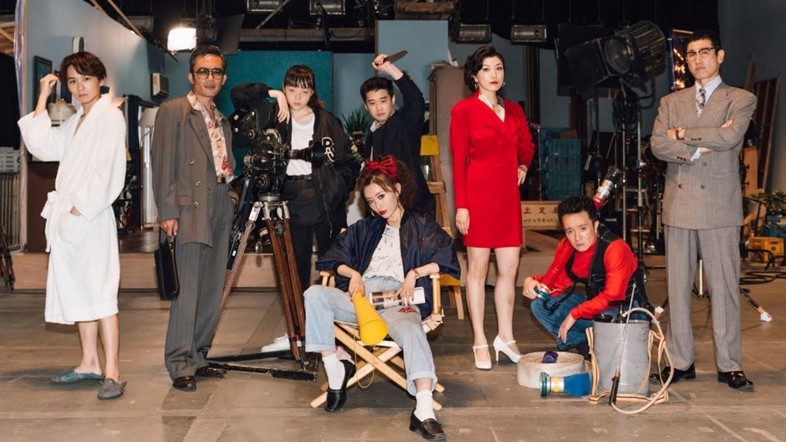
Shrieking In The Rain, 2021
Director Eiji Uchida won the Japanese Academy Prize for Best Picture in 2020 for Midnight Swan, a drama about a transgender woman working as a dancer in a Tokyo nightclub. In 2021, he follows that success with Shrieking In The Rain – which explores the struggles of a young female director (Marika Matsumoto) who battles antagonist crew members, self-indulgent actors and meddling producers on the set of a softcore porno in 1988.
The film is the latest in a long line of hyper-creative and innovative Japanese films-about-making-films, which include major crossover hits One Cut of the Dead (about a film crew making a zombie movie who find their production interrupted by a real-life zombie invasion), and 2021’s micro-budget, one-shot time-travel fantasy Beyond The Infinite Two Minutes.
Director Uchida’s dabbled in the genre before himself, with 2015 drama Lowlife Love telling the story of a failing indie filmmaker in his attempts to rebuild his career while maintaining his artistic integrity. The two works make a great double bill – especially since the aforementioned’s lead, Kiyohiko Shibukawa (Wheel of Fortune and Fantasy; 9 Souls), appears in a total role reversal in Shrieking In The Rain.
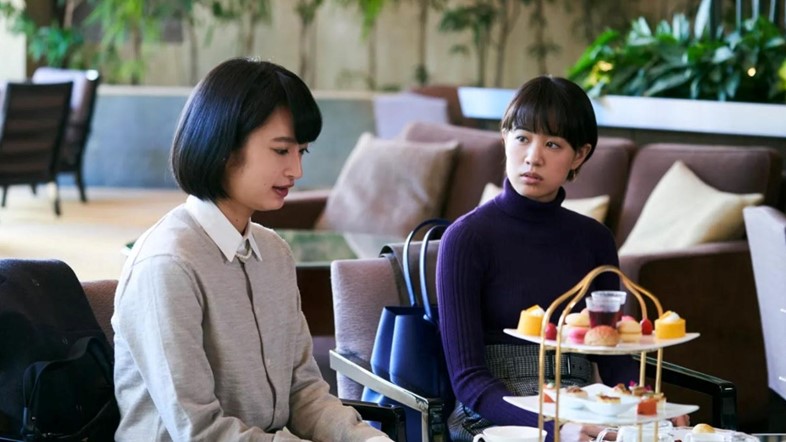
Aristocrats, 2020
The stories of two women from different social classes unfold across several chapters in the latest work from director Yukiko Sode: Aristocrats.
At a decadent family dinner, Hanako (Mugi Kadowaki, Hanagatami) announces that she has just broken off her engagement. Her family and friends insist she must find a new suitor – resulting in a series of mismatched dates before, eventually, she falls for an aristocrat. At the same time, Miki (Kiko Mizuhara, Norwegian Wood) struggles to find her place in Tokyo after moving away from her less-well-off family in the countryside; she also finds herself taken by a wealthy man.
With women’s agency a central theme in both stories, Aristocrats casts a critical eye on themes such as gender politics, class, tradition and society in contemporary Japan. The result is a thought-provoking study that transcends national boundaries.
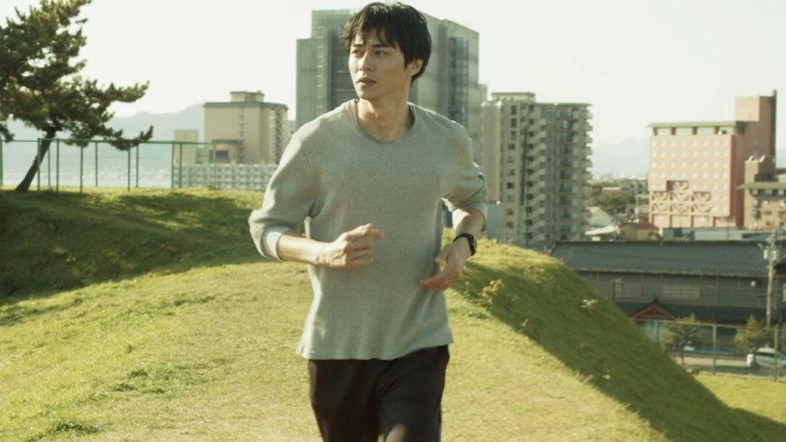
The Sound of Grass, 2021
The Sound of Grass is one of at least three films screening at the Japan Foundation Touring Film Programme this year to star Masahiro Higashide (Asako I & II; Blue), and for good reason – he’s a magnetic leading man, as exemplified here.
Opening with a tranquil-paced tracking shot of the handsome lead rolling into a dull, grey town on a skateboard, the film soon makes it clear that Higashide’s character, Kazuo, is suffering from a mental health condition – which requires medication and regular doctor’s visits. You could be easily fooled into thinking the rest of the film was a study of the regenerative power of jogging, as Kazuo works on his recovery to the sound of a ruminative and elegant piano score while scurrying along the Hokkaido coastline. But the road ahead is bumpier than it first seems.
An extra layer of meaning is revealed when you learn that the film is an adaption of a novel by Yasushi Satô (author of the books And Your Bird Can Sing and The Light Shines Only There) – who tragically took his own life in 1990. Director Hisashi Sato, who also penned the screenplays for Shinya Tsukamoto’s Tokyo Fist and Hideo Nakata’s Chaos, brings the original novel to the screen in delicate fashion in this meditative drama.
